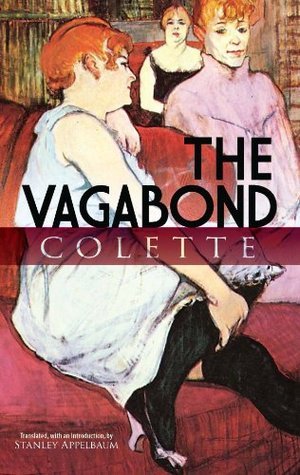- The Good: A romance story that pits love against freedom
- The Bad: Uneven and prone to digressions
- The Literary: A witty and piercing take on 1900s Paris class differences
Recently divorced, 33-year-old Renée Néré works as a vaudeville performer, acting, miming, and dancing. She loves her new independent life, her lively friends, and her quiet apartment. But when wealthy playboy Maxine tempts her from the vivid nightlife to the comforts of love and marriage, she reflects in a series of letters the conflicting needs of security and freedom.
Colette’s novel The Vagabond (or maybe better translated as The Wanderer) is semi-autobiographical, recalling her own personal experiences as an itinerant dancer in turn-of-the-century 1900s Paris. I really enjoy Colette’s voice. She’s an observer of human nature and its biases and makes some harsh criticisms of the sort of people who patronize vaudeville but also find it salacious and have no appreciation for the craft. Renée herself is organized, quiet, and punctual, but she appreciates the characters around her.
Renée is also prone to wistfulness, and she gets caught up in passions for writing and travel and plants, and her voice becomes rapt and excited and flowery. She laments her age and any wrinkle, hoping to stop the clock. As a reader, you see her joy in life, and you hope she doesn’t make a decision to accept Maxine’s offer just because her own biological clock is ticking.
Colette thinks she’s falling in love with Maxine and is almost embarrassed to tell her friends. To clear her head, she accepts a part in a traveling show to provincial France, where she and Maxine write letters to one another. The physical distance gives her psychological distance to reflect on her first marriage, the attitudes of wealthy men, the acceptability of extra-marital affairs in high society, infatuation versus love, and the difference between a comfortable boring life of the bourgeoisie and her own bohemian lifestyle.
Most of all, I like how Renée accepts that whatever decision she makes she will regret. She must choose between two loves, two lives, and neither are flawless. So is life. C’est la vie!
